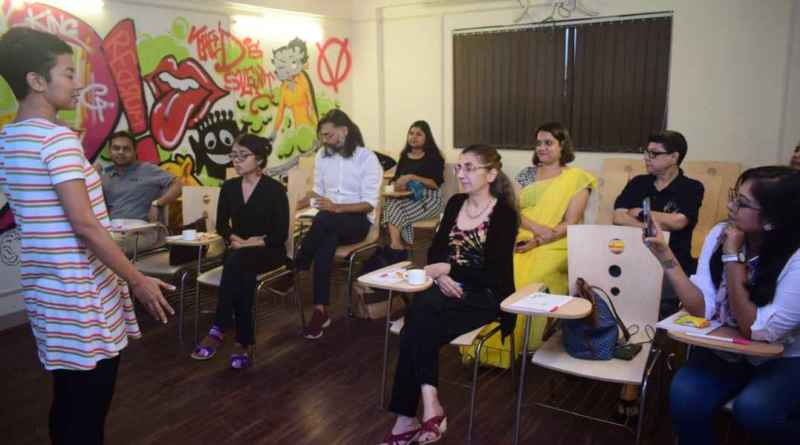India must ensure strategic management of e-waste to move towards a more sustainable future
News Correspondent, abptakmaa, Kolkata, 12th Dec 2019 : Karo Sambhav specially organised a workshop for people from all walks of life, held at one of the cultural centres of the city. For the past month and a half, Kolkata’s air quality index has been much worse than Delhi’s, making it the most polluted metropolitan of the country. With the city’s air being routinely toxic during the colder months of the year, the coastal city of Kolkata is also acutely vulnerable to climate change its dangerous consequences. Hence, a session organised by Karo Sambhav and conducted by Paromita Saha proved to be rather appropriate to educate the attendees about the oft-neglected treatment of e-waste in our everyday lives because India generates nearly 2 million tonnes of electronic waste per year behind only the United States, China, and Japan, while around 82 per cent of the e-waste is generated from personal devices.

Currently spread across 29 states, 3 union territories, and over 60 cities, Karo Sambhav has collaborated with 25 producers, 2515 schools, 520 bulk consumers, 1007 repair shops, 5,000 informal sector workers including waste pickers and waste aggregators by setting up multiple collection points across the country to address the e-waste problem. Moreover, it has ensured global brands like Apple, Dell, HP, Lenovo, Vivo, Xiaomi, Cisco, Toshiba, Ericsson, and others meet their Extended Producer Responsibility (EPR) targets. EPR is “the extension of the responsibility of producers for the environmental impacts of their products to the entire product life cycle, and especially for their take-back, recycling and disposal”.

Under E-waste management Rules, 2016, it is the consumer’s responsibility to consciously recycle their old gadgets. Bulk consumers like corporates and organizations can also become responsible stewards of environment by disposing of their e-waste through authorized take back channels like Karo Sambhav or other such PROs in their respective regions.
Mr. Pranshu Singhal, Founder, Karo Sambhav, an Indian social enterprise said, “Over the last two years, we have set-up systems to integrate informal players into the formal sector and provide them with the opportunity to responsibly manage e-waste without harming the environment or their health. We are also driving consumer awareness & behavioural change by creating a grassroots driven collection network, capacity building & knowledge exchange through various alliances like Ministry of Electronics and Information Technology (MeitY), Goa Waste Management Corporation (GWMC) etc.”
As Paramita Saha, Karo Sambhav representative mentioned during the session, to effectively tackle this crisis, Karo Sambhav, through its various interventions since 2017, Karo Sambhav has collected over 7,100 Metric Tonnes (MTs) of e-waste for responsible recycling. Karo Sambhav is one of the first organizations to be authorized as Producer Responsibility Organisation (PRO) by Central Pollution Control Board (CPCB), while their primary focus was to address the glaring gaps in infrastructure and the e-waste ecosystem in itself for the implementation of the tightened regulations by the government.
Its awareness initiatives have engaged over 3 million people across the stakeholder ecosystem. They also have systems across the country to enable e-waste collection and channelization for responsible recycling.
During the session, blogger Anusrea Paul suggested that PROs like Karo Sambhav could take an initiative of setting up e-waste collection bins in corporates and IT offices to simultaneously take a step towards spreading awareness about the crisis and responsibly collect any e-waste from these IT sectors. Karo Sambhav has also launched an app for bigger consumers to collect e-waste in bulk and plans to make the app accessible on an individual basis, very soon. Publicity : Supreeta Singh.



